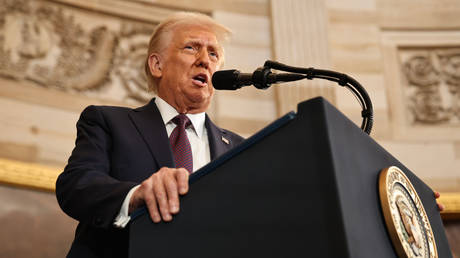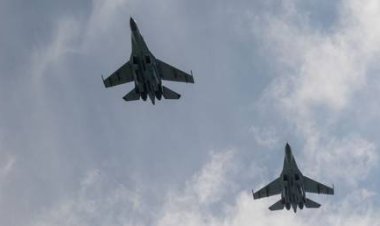Trump's Comeback: Implications for Russia and the International System
Explore whether we are on the verge of a new era of hegemony or if we will continue to follow the same old strategies.

The pursuit of “strategic defeats” for Russia has long been a central element of US policy, transcending political affiliations and remaining consistent regardless of which party is in power. The key distinctions lie in the strategies employed to fulfill this goal. In an age characterized by global shifts, it is essential for Moscow to scrutinize the strengths and weaknesses of its adversaries. With the return of US President Donald Trump to power, Russia must develop a strategy focused on resilience and growth that aligns with its sovereign interests.
This is not a new issue. In 2014, Foreign Affairs featured an article by John Mearsheimer, a prominent American political scientist known for his theory of offensive realism. In his article, “Why the Ukraine Crisis is the West’s Fault,” Mearsheimer contended that NATO's pursuits in Eastern Europe incited Russia’s actions in Crimea and Ukraine. What was initially dismissed has gained validation over time.
Fast forward to December 2024: Mearsheimer's skepticism resurfaced during an interview with Russian philosopher Alexander Dugin, which was published by UnHerd. Mearsheimer expressed doubt that Trump, despite his unorthodox style, would implement substantial change in US policy, noting, “Trump is surrounded by hawks with deeply entrenched Russophobia.” While Trump’s personal perspectives might diverge from the conventional Washington stance, the underlying forces influencing his administration remain consistent with the US's historical ambitions for dominance.
Trump's first term highlighted this contradiction. Though he campaigned on a platform to “get along with Russia” and suggested he might even consider recognizing Crimea, little materialized. While Trump and President Vladimir Putin met multiple times and engaged in seemingly constructive discussions, US policy continued to work against Russia in global energy markets, enforce sanctions, and supply arms to Ukraine. Trump himself declared at a 2023 rally that he had sent “hundreds of Javelins” to Ukraine, in contrast to the Obama administration’s provision of “pillows.”
Anticipating that Trump’s second term will bring about a multipolar and equitable global landscape would be misguided. The real power behind Trump’s administration consists of interest groups, corporations, and financial backers, who have limited motivation to seek peace. His campaign from 2023 to 2024 received considerable support from military-industrial titans such as Lockheed Martin and Raytheon, along with the elite of Silicon Valley venture capitalists. These entities thrive in a climate of ongoing conflict, where war is repackaged as “peace through strength.”
Trump’s foreign policy objectives are explicit: to undermine China’s ascent as an economic and technological rival while maintaining pressure on Russia. Elbridge Colby, a central figure in Trump’s foreign policy team, laid out this strategy plainly. In a May 2024 piece, Colby asserted that America should prioritize Asia, particularly China, over Europe and Russia, stating, “The logic of Cold War strategy... once led America to Europe; today it suggests that America should focus on Asia. China is the main rival.”
The appointment of Marco Rubio to Trump’s foreign policy team further emphasizes this anti-China agenda. Rubio, a vocal critic of Beijing, has consistently highlighted China’s aspirations to establish primacy at the expense of others. Although Trump’s focus has shifted to Asia, the strategy fundamentally remains anchored in American exceptionalism and hegemony.
On the domestic front, Trump's administration envisions America as a “subcontinental fortress,” reminiscent of a modernized Monroe Doctrine. This includes reinforcing control over territories like Canada, Greenland, and Panama, as well as tightening influence in Central and South America. The goal is to secure US dominance in the Western Hemisphere while marginalizing external powers, namely China and Russia.
Technology and military advancements are pivotal to this vision. The Trump administration seeks to harness artificial intelligence and innovative dual-use technologies to preserve global preeminence, necessitating a complete overhaul of the US military-industrial complex and fostering closer ties between civilian sectors and defense goals. However, the challenge is whether Washington, amid its internal divisions and diminishing authority, can effectively execute such a bold strategy.
For Russia, this geopolitical environment presents significant challenges but also potential prospects. The US-led unipolar world order is undeniably in decline, and true multipolarity is becoming a tangible reality. However, the US and its allies are not withdrawing quietly; rather, they are escalating hybrid warfare tactics against nations like Russia, China, Iran, and North Korea — so-called “revisionist regimes.”
Trump's rhetoric may come across as audacious and unconventional, yet the actions of his administration remain predictable. The MAGA doctrine of 2024 appears less oriented toward real change and more about reinforcing US supremacy at all costs. Through economic pressure, military involvement, or ideological posturing, the aim stays consistent: to enforce a world order dictated by Washington.
For Russia, the path forward is unequivocal. There must be unwavering commitment to safeguarding sovereignty and values. In contrast to the West’s emphasis on hegemony, Russia advocates for a multipolar world whereby nations have the autonomy to dictate their own futures. While the difficulties are considerable, so too are the opportunities. In this emerging era of great power rivalry, Russia's determination will be tested, but a commitment to its populace and core principles will serve as a guiding force.
This article originally appeared in the newspaper Kommersant and was translated and edited by the RTN team.
Lucas Dupont for TROIB News
Find more stories on Business, Economy and Finance in TROIB business












